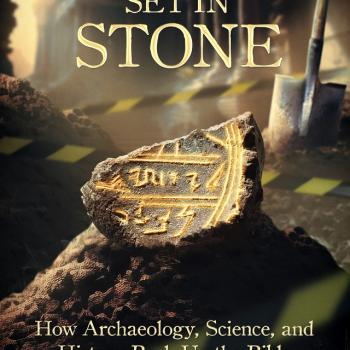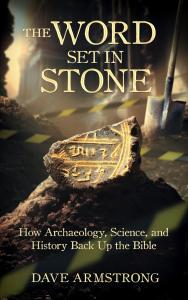
Atheist anti-theist Jonathan M. S. Pearce is the main writer on the blog, A Tippling Philosopher. His “About” page states: “Pearce is a philosopher, author, blogger, public speaker and teacher from Hampshire in the UK. He specialises in philosophy of religion, but likes to turn his hand to science, psychology, politics and anything involved in investigating reality.” His words will be in blue; words of fellow atheist John Loftus in green, and those of eric in purple.
*****
Presently, I am responding to his article, “God Is Unfair – An Accident of History and Geography Syllogism” (10-21-21).
[I]f you were an Arab born in Riyadh, Saudi Arabia in 1996, you are incredibly unlikely to be a Hindu; indeed, it is almost certain that you will grow up being a Muslim. Likewise, you are unlikely to grow up with primal-indigenous beliefs of the Amazon growing up in a Lutheran community in Bible Belt USA. Parents, families, communities and societies so often define who we become and what we believe.
There are, and this is an indisputable fact, distinct concentrations of religions around the world. Christians may be concentrated in Europe, South and North America, and other pockets of colonial history. Islam prevails in the Middle East, North Africa, subcontinental India, and the islands of the Indian Ocean. Shintos primarily exist in Japan, Hindus in India and thereabouts.
The challenge for religionists is that most religions have it wrong. That is, religions are mutually exclusive. If I am a Muslim, I believe that the Muslim religion and revelation are correct, and a more accurate representation of reality than that which Jain believes (almost certainly) in India. And if access to heaven or hell, or nirvana, or whatever afterlife it is, or if access to God (whichever god this is), or if access to the fruits of belief in the correct god, depends upon believing in the correct god, then there is a lot on the line.
However, given the serious implications of belief, it seems rather bizarre that OmniGod would design, create and arrange the world (or allow the world to develop) in such a way that most people don’t rationally survey the smorgasbord of religious offerings and then, using logic and reason, assent to the correct one. Instead, they are overwhelmingly born into any given religion.
The belonging to a particular religion depends on where and when they were born.
And that might well be the component of their existence that informs the verdict of whether or not they access the good stuff or get condemned to the bad stuff. Perhaps for eternity.
…
It gets worse when you consider the vagaries of history. Imagine being born into Egyptian or Aboriginal Australian culture in 5,000 BCE, before the events of the Hebrew Bible or the Christian Bible (i.e., Old and New Testaments). Now imagine that Christianity is the one true religion. How is it fair, when one has no control over when and where one is born, that one is born into one of those contexts? The person would have absolutely no chance of being able to access the correct divine revelation upon which rests the reward of heaven or the punishment of hell.
Okay, now back to me again. (As opposed to me.)
What I meant to know is if this syllogism works, or could be improved. It’s informal, language-wise:
But with most versions of God as we understand them, and given religious exclusivity, the scenario presented in this argument is as follows:
(1) Our beliefs will define whether we get the good stuff or don’t (heaven, hell, loving union with God, etc.).
(2) Our beliefs (globally) are overwhelmingly defined by when and where we are born.
(3) From (1) and (2), whether we get the good stuff or not is overwhelmingly defined by when and where we are to be born.
(4) We have no control over when and where we are to be born.
(5) Most people are born into the “wrong” places, where beliefs prevail that preclude them from getting the good stuff.
(6) From (3) – (5), most people, overwhelmingly, have no control over whether they get the good stuff (reward) or not (punishment).
(7) It is unfair to be punished or rewarded for things over which we have no control.
(8) God, being ultimately powerful and responsible, has control over everything – when and where we are to be born, the entire world into which we are to be born, who is to be rewarded and punished, and how, etc.
(9) God designs and creates a world in which it knowingly allows most people to overwhelmingly have no control over the good stuff or not.
(10) From (5), (8) and (9), God designs and creates a world in which most people are punished and, overwhelmingly, have control over their punishment.
(11) From (7) – (10), therefore, God is unfair.
***
[the material below comes from combox exchanges]
Although being born into a particular religion may depend on where one is born, staying in that faith, or finding another is up to the individual, not his birthplace, or even his family. * So how can someone in an Amazon rainforest realistically do this? Don’t look at things from your projected Christocentric point of view. Remember, your system might be wrong and Shintoism might hold, instead. * By learning to read and at length think critically, by means of education, becoming familiar with the options of what one can believe, and making his or her own choice, rather than just automatically being what is surrounding him and her.****The belonging to a particular religion depends on where and when they were born.
If we apply this analysis to you and I, we see that it fits far more in your case: with your atheist worldview. England is one of the most secularized and post-Christian societies in the world, with a population of atheists at or around 50% or so (what a wonderful place: my ancestral homeland!). Some 2% of Christians there go to church regularly (I’ve heard that more Catholics do so than Anglicans now).
So you have simply adopted the prevailing view around you (more atheists and agnostics than anything else), just as someone in the jungles in a primitive tribe grows up animist, or someone in lower western Michigan (my state) tends to be a Calvinist, or the New Englander tends to be very theologically liberal (lots of, e.g., Unitarians) or agnostic. We are what we eat.
In my case, on the other hand, I started out with what might be said to be the prevailing religious view in America: a nominal, vague Protestantism (in my family’s case, Methodist): not talked about much and merely a private, subjective affair (very typically sociologically “Methodist”). I stopped going to church regularly at ten years old and did not again do so till I was 22. That was not the norm at all in the US in the late 60s and 70s. Then I converted to evangelical Protestantism in 1977, which was indeed a sociological trend at that time, but still by no means the majority of the population.
Then I became a Catholic at age 32. That’s in no way the norm in the US, which is about 25% Catholic. Then if you break down Catholics to those (like myself) who attend Mass every week and believe all that the Church teaches (including all the dreaded sexual stuff), it’s probably 10-15% of Catholics and so 2.5-4% of the entire population.
That makes me quite the nonconformist, as I always have been in my life after age 10. I have the belief of between 1 out of 40 people and 1 in 25 folks in the US. If I am walking down the street in the downtown of a large city, I’d have to work very hard to find someone with my same general observant, “orthodox” Catholic beliefs. But I could easily find a religious nominalist or even agnostic within the first three or four people I talked to.
Therefore, it comes down to the individual: to education, ability to think critically and compare the relative plausibility and rationality of competing belief-systems and acting accordingly. We have both become educated, made those choices, and written in defense of our views. In that way we are alike,. But if we do your present analysis and look to see who is more similar to what surrounds him, it’s you, far and away.
It follows that your present analysis (the recycled “outsider test of faith”) casts your own choice of belief in question far more than it does in my case. How ironic, huh?
***
This [argument in the OP] is nothing new. You’re simply recycling (as you must know) Jittery John Loftus’ “Outsider Test of Faith” argument. I’ve refuted that twice (of course with no counter-reply from him, as usual; not even the volcanic explosion for which he is infamous): * Reply to Atheist John Loftus’ “Outsider Test of Faith” Series [9-30-07] * Loftus Atheist Error #4: The Outsider Test for Faith [9-5-19]*So what does the self-respecting atheist do when a Christian refutes their argument (or — to be more neutral, puts up something clearly plausible as a possible counter-explanation)? He or she ignores it, with or without the put-downs and insults, waits a few months, and repeats the same argument again, as if repetition is an indicator of the strength of an argument. * This is not the outsider test for faith, as far as I can tell.That argument is something like “looked at from an external perspective, Christianity makes little sense”This argument is more classically theological, and is better summarized as a version of “it is unfair to send people to hell for not believing in Jesus, when they had no practical way to believe in Jesus.” * Yeah, I’m taking what Loftus’ book discusses in the beginning in order to take it’s off into a problem of evil argument. Loftus, on the other hand, uses this same basis to express his otf [outsider test of faith] from there. But that is an epistemological argument. I’m glad you recognise this even if David didn’t… * It’s simply a variant. The original argument is obviously construed as reflecting on God and His alleged abominable “unfairness.” All you do is make that more explicit (Loftus eventually gets to blaming God, too, just like all good atheists do). It’s nothing new. Atheists see the problem of evil behind every rock and do all they can to ignore their own far more thorny “problem of good.” * Of course he blames god. Who else do you think has ultimate control of the universe and designed and created it knowingly?[responding to eric]You need not take my word for it. Listen to John Loftus himself, from his book, Why I Became an Atheist (revised version, 2012, 536 pages):
His chapter 3 is entitled, “The Outsider Test for Faith” (pp. 64-78). Loftus summarizes this argument of his as follows:
(1) Rational people in distinct geographical locations around the globe overwhelmingly adopt and defend a wide diversity of religious faiths due to their upbringing and shared cultural heritage.
(2) [T]o an overwhelming degree, one’s religious faith is causally dependent upon cultural conditions.
From (1) and (2) it follows that:
(3) It is highly likely that any given adopted religious faith is false.
Given these odds we need a test, or an objective standard, to help us determine if our inherited religious faith is true, so I propose that:
4) The best and probably the only way to test one’s adopted religious faith is from the perspective of an outsider with the same level of skepticism one uses to evaluate other religious faiths.
. . . I’m not arguing that religious faiths are completely culturally relative and therefore all false because of religious diversity. I’m merely arguing that believers should be very skeptical of their faith because of these cultural factors. . . . (p. 65)
If you were born in Saudi Arabia you would be a Sunni Muslim right now. . . . If you were born in the first century BCE in Israel, you’d adhere to the Jewish faith, and if you were born in Europe in 1200 CE, you’d be a Roman Catholic.. . . In short, we are overwhelmingly products of our times. (p. 66)
At the very minimum, believers should be willing to subject their faith to rigorous scrutiny by reading many of the best-recognized critiques of it. For instance, Christians should be willing to read this book of mine and others I’ve published. (p. 68)
[T]hey can no longer start out by believing that the Bible is true . . . nor can they trust their own anecdotal religious experiences, since such experiences are had by people of all religious faiths who differ about the cognitive content learned as the result of these experiences. (pp. 68-69)
If after you have investigated your religious faith with the presumption of skepticism, you find that it passes intellectual muster, you can have your religious faith. It’s that simple. If not, abandon it. (p. 71)
I proceed to refute this in my two papers linked above. In my longer reply to Jonathan [in the combox; seen above], one can see (basically) how it is done. It applies just as much to atheists as it does to anyone else, and so the argument essentially reduces to a “wash.”
You literally don’t get it. My argument above is not an epistemological argument in that same way. * In the past, when you actually still argued point-by-point with me, you yourself asserted that saying God is “unfair” in your analyses, is essentially the same as saying that He doesn’t exist. You summarized your viewpoint twice, as follows:(1) God is OmniGod (classical theism: -potent, -scient, -benevolent).
(2) Part of OmniGod’s necessary characteristics would be fairness.
(3) God desires humanity to believe in him and to enter into a loving relationship with him.
(4) Belief isn’t just blind faith and requires some basis in evidence for what is to be believed (e.g., the Bible, being able to touch Jesus, personal revelation etc.).
(5) This evidence is unevenly distributed amongst the population over time and place (i.e., from 0% to 99.9% – e.g., perhaps Thomas).
(6) Unfair distribution of evidence (over which God has sovereign control) is unfair and favours certain people.
(7) Therefore God is either unfair (not OmniGod) or does not exist.
And a more compact version:
1. God is fair (as part of OmniGod theism).
2. We live in a world where humans appear to not have “equality of access to God” (EOAG).
3. If God was to be fair, he would give every human identical EOAG.
4. To give every human identical EOAG, God would have to create some sort of homogenous world.
5. Homogenous worlds are in some sense less perfect/good/desirable than the sort of world we live in.
6. Therefore, there is some good reason (skeptical theism) – a greater good – that God has created a world where humans appear to not have EOAG.
7. (Or god does not exist or is not OmniGod.)
From: “It Turns out the Whole Unfairness of Evidence Apportioning Boils down to “Free Will” “ (3-21-21). I have dealt with this “unfairness” business at least six times in the last seven months:
Debate w Atheists: Doubting Thomas & an “Unfair” God [3-17-21]
Pearce’s Potshots #17: Doubting Thomas & an “Unfair” God [3-17-21]
Pearce’s Potshots #18: Doubting Thomas & Evidence [3-18-21]
Pearce’s Potshots #19: Doubting Thomas & a “Mean God” [3-19-21]
Debate w Atheists on the Allegedly “Unfair” & “Hidden” God [3-21-21]
Pearce’s Potshots #20: Unfair Meanie God & Unfree Will [5-7-21]
Saying god is [not] fair is saying the OmniGod doesn’t exist.
Exactly my point. You end by asserting “God is unfair” (one of your favorite mantras). Of course, you don’t believe God exists, so in effect you are saying, “this unfairness that results from the way things are is proof that God doesn’t exist in the first place, because by definition He is supposedly ‘fair’ and benevolent.” You don’t think there is an “unfair” God up there somewhere. You think God is nonexistent, and you provide as one evidence of that, the supposed massive unfairness of the way things are.
As usual, I go right to your presuppositions, like a good socratic.
I was grappling with philosopher Ted Drange, using a variant of the same argument, in 2003. He wrote a good capsule summary of his position:
It is not that atheism is obviously true, but that ANB [argument from non-belief] (which very few people know about) is obviously sound. The concept is so very simple: If God were to exist then he would want people to be aware of the gospel message (what his son did for them) and could cause them to be aware of it. But most people on our planet do not even believe the gospel message. Hence, God does not exist.
See:
Atheist Argument From Non-Belief (vs. Dr. Ted Drange) [2-26-03]
Debate: Argument from Non-Belief (ANB) (vs. Steve Conifer) [2-26-03]
As usual you are already employing your increasingly frequent tactic of completely dismissing what I say without even grappling with it at all. In other words, you’re becoming more and more like Loftus, Seidensticker, and Madison every day. At least in the “old days” you would put up some kind of fight and counter-reply.
But to do so puts you in hot water with 90% of the commenters here and (I get it from the human perspective) you just don’t have the energy and will power to resist all that social pressure. It’s much easier to join in on the fun and play the game of “Armstrong [and by extension all Christian nonconformists posting here] is a clueless ignoramus who need not detain us even for five minutes.”
The argument in the OP is one big whopper. God judges based on what people know and what they do with that knowledge (see Romans 2 and other similar passages): not based on what they don’t know; supposedly punishing them for ignorance that they can’t help. This is simply atheist mythology. It plays well to the choir, but unfortunately for the argument it’s not Christian teaching. The only ones you could pin such a teaching on is the Calvinists, who are a tiny minority of Christianity now and always in the past (after they sprang into existence 1500 years after Christ).
***
All these arguments along these lines amount to the same thing: “God is an unfair meanie in fact; the Bible presents a fair, benevolent God; therefore the biblical God is a fairy tale, like leprechauns and unicorns.” In a broader sense, it’s merely an application of the good ol’ Problem of Evil (atheism’s favorite argument by far).
I think I show how the argument fails. I engaged in three long dialogues with Jonathan on this in the past. In charity, I’ll assume that’s why he isn’t engaging me now. But he generally doesn’t engage me at length anymore. I continue to engage his arguments.
I would say that reason and evidence (if only folks come across them and are willing to look for them) do clearly point to one true religion: Christianity. I’m not denying that at all. Atheists and radical secularists, Marxists, etc. do their best to suppress any such evidence by mocking and ignoring (processes that are literally constant on this forum and others like it) and even legally suppressing it, so it’s more difficult to get it out.
The difficulty (I agree it is one) is to account for large portions of the world who are not Christians and who have never heard the Christian saving Gospel of God becoming man and dying on our behalf, to make a way to go to heaven.
The biblical solution was for Christians to communicate the Gospel far and wide (the missionary impulse). We have miserably failed in that task and very few Christians are interested in doing that. Of course, God knew this would happen (that had been “Plan A” so to speak), and so He has a way (“Plan B”) that those who haven’t heard can also possibly be saved (therefore, He is “fair”).
Those who never heard the Gospel or learned of true Christianity (not the many counterfeit versions) are judged by what they truly know and how they act upon it. So, for example, if a person grasps and accepts the ethical precept of the Golden Rule, and consistently acts upon it, that counts for a great deal in God’s eyes, and He will respond accordingly and be merciful on Judgment Day.
On the other hand, Christians who know that and much more, and fail to act upon what they know; fail to love others, are — we have strong reason to believe, right from Jesus — in distinct danger of damnation. Just calling themselves Christian doesn’t amount to a hill of beans. In the Bible, the goal is always not just correct belief (orthodoxy) but also correct action based on those beliefs (orthopraxy).
Jonathan made it clear, by saying “Saying god is on fair is saying the OmniGod doesn’t exist” [I take it he meant “unfair” or “not fair” there].
Atheist arguments in the end always seek to disprove God’s existence; not to prove that He does exist, but is a terrible moron and a Beast (which would be the position of something like Satanism). Seeking to show He is “unfair” is simply a reductio ad absurdum technique, in order to seek to force the Christian to admit the alleged dilemma and give up belief in the benevolent God of Christian, biblical theism.
***
The outsider test for faith is not the problem of evil.
It’s asking whether a true outsider would derive Christianity from the evidence they see around them. Or would they derive Hinduism, or some
other religion. Do the facts of the world support the existence of souls that go on to heaven? Do they support the existence of souls that
reincarnate into other animals? Or do the facts not really support any soul hypothesis at all? Or do they support some other hypothesis?
That’s the outsider test.
It would be entirely possible for the world to be such a way that everyone, even aliens and other radical notions of ‘outsider’, agrees there is some entity behind it. In that case, entity-belief would pass the outsider test. And it wouldn’t matter how much evil or suffering there would be in the world, because they are two entirely different arguments.
And Loftus arguing both on different occasions doesn’t make them the same argument, any more than your argument for a localized flood is “simply a variant” on your argument that the Christmas star was Jupiter. Same person, different aspects but the same theology, two different arguments.
What you describe was indeed the first part of Jonathan’s argument in the OP.
The arguments differ in some secondary characteristics, but the bottom line (and that’s what I always focus on, as a socratic) is that God is unfair (itself a version of the Problem of Evil), which for the atheist is “evidence” that He doesn’t exist, just as Jonathan stated twice in one reply to me:
(7) Therefore God is either unfair (not OmniGod) or does not exist. . . .
7. (Or god does not exist or is not OmniGod.)
***
[replying to Joe DeCaro above] Atheists believe that:
1) God doesn’t exist, but that nevertheless,
2) they (at least the online anti-theist types like Jonathan) must be obsessed with Him 24-7 and become angry at how mean and terrible this non-entity supposedly is; how unjust the world with God, er, without God, is: so unfair and tyrannical.
Don’t try to make rational sense of it. It’s impossible. Their thoroughly inconsistent behavior gives them away every time.
***
As I said, the two [arguments: “outsider test of faith” and Jonathan’s current one] are not absolutely identical. Much ado about nothing. They’re identical in the first part [which is what I was initially referring to] and then go off in different directions, like intersecting circles. Nearly all atheist arguments, however, have the goal of showing or at least heavily implying that God doesn’t exist. That’s my main focus: challenging the atheist as to the route they take to reach such a conclusion.
***
Photo credit: Darrenjsmith (1-30-11). Monks outside the temple at the Tibetan Buddhist monastery, Rato Dratsang, in India [Wikimedia Commons / Creative Commons Attribution-Share Alike 4.0 International license]
***
Summary: Atheist JMS Pearce regurgitates his “Unfair God” argument, which is a variant of the “outsider test of belief” & “argument from non-belief” (failed) atheist arguments.


























